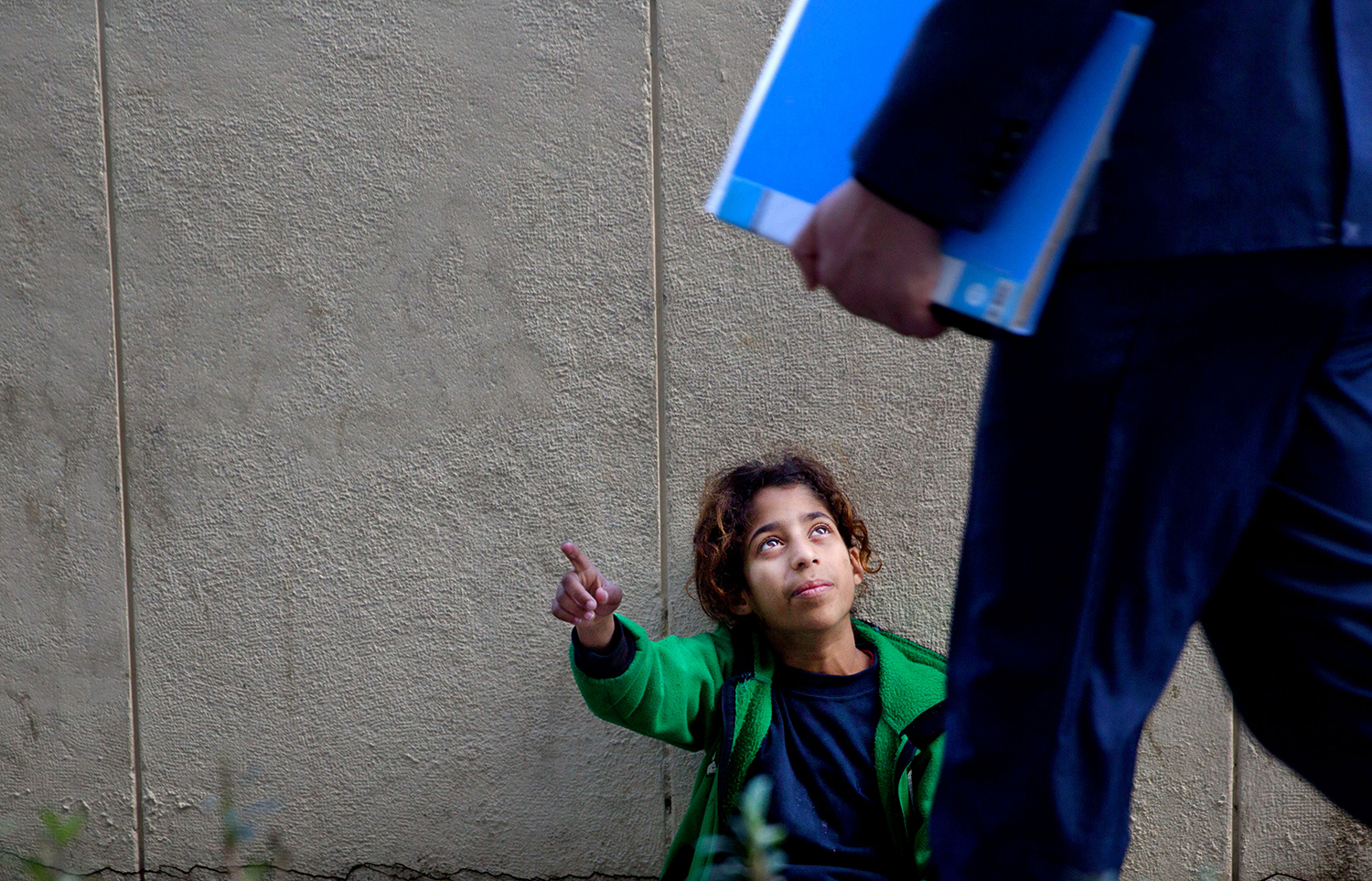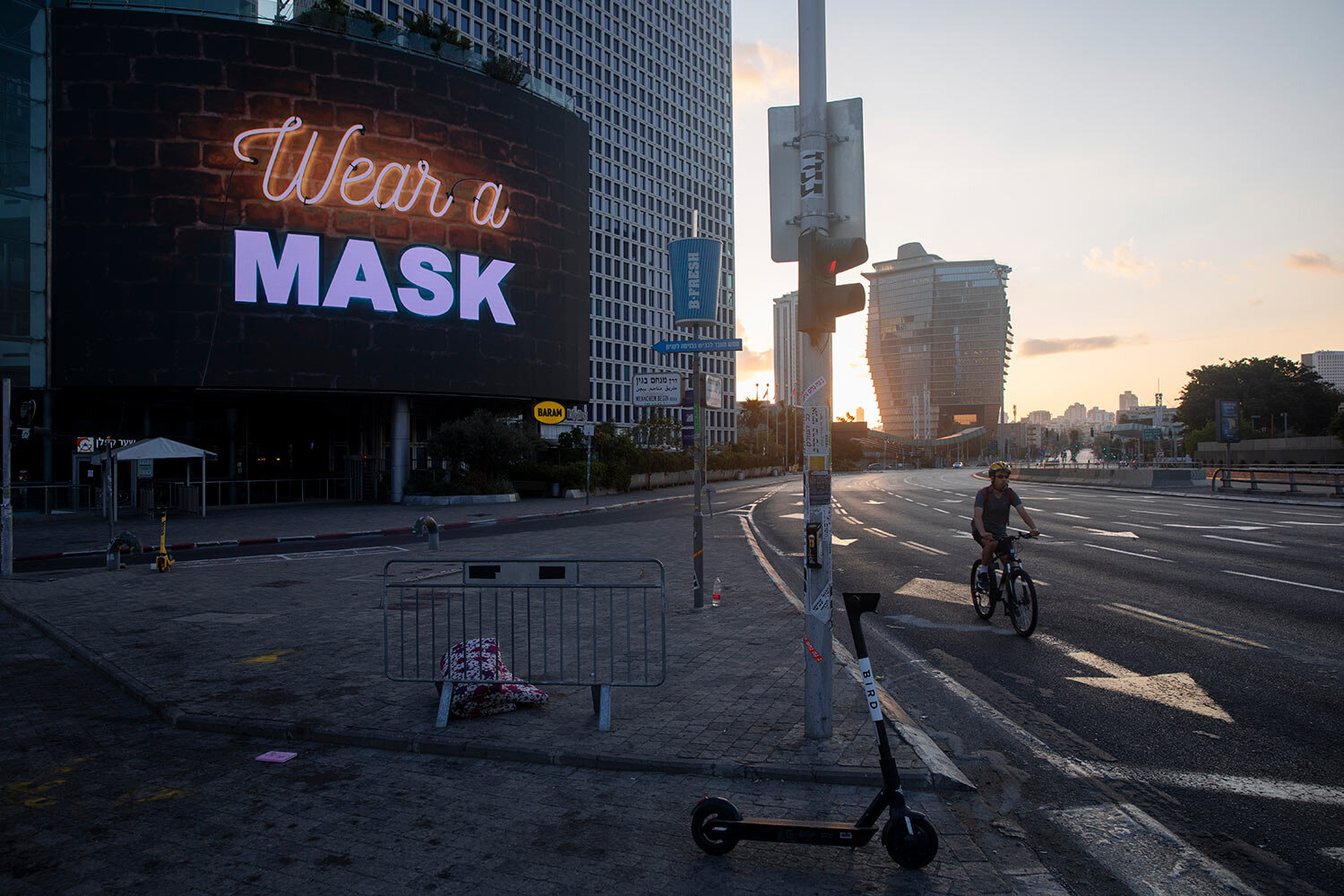Scars from Beirut blast capture moment of horror

Their scars capture the horrific moment when every window shattered.
The explosion in Beirut blew out windows for miles around and sent cascades of glass shards pouring onto the streets. It killed at least 180 people and left 6,000 wounded.
The scars often tell the story of where the victim was standing when a stockpile of explosive chemicals stored at Beirut's port was ignited by a fire, sending an earthquake-like jolt through the city and leaving entire blocks littered with rubble.
Shady Rizk, 32, network engineer, who got injured at his office poses for a photo in Beirut, Lebanon. (AP Photo/Hassan Ammar)
Shadi Rizk, a network engineer, was working in a glass building across from the port and saw the fire out his window. A haunting video he shot on his phone shows the column of spoke and his reflection in the glass window. His colleagues can be heard chanting “Oh my God” in the background.
Then there is a ball of fire and the screen turns to dust.
“I couldn’t see or hear anything at first, there was void,” he said. “Then, after 20 minutes, I think people heard our screams and someone came and took us to the hospital.”
He needed 350 stitches, dark tracks that criss-cross his arms, legs, chest and face.
“The scars that will remain on my face and body will tell my story," he said. “They are a sign that I’ve been deeply hurt and a sign that I have healed.”
Clara Chammas, a psychologist and a health coach, poses for a photograph at her parents’ house in Beirut, Lebanon, Friday, Aug. 14, 2020. (AP Photo/Hassan Ammar)
There are other wounds that will take much longer to heal. The blast destroyed entire neighborhoods near the port, leaving tens of thousands of people unable to live in their homes or operate their businesses. Lebanon was already in the grip of a severe economic crisis and struggling to contain a coronavirus outbreak.
The trauma from the explosion will run deep, even in a city that has seen decades of war, conflict and instability.
Angelique Sabounjian, a fashion model, was left with a gaping wound above her right eye from flying glass, now replaced by stitches. She, like others, is now demanding an international investigation.
“It was a kind of a nuclear bomb," she said. "This was not something normal to happen.”
Hussein Haidar, 27, poses for a photograph at his parents’ house in Beirut, Lebanon, Friday, Aug. 14, 2020. (AP Photo/Hassan Ammar)
Yara Saeid, 4, poses for a photograph in Beirut, Lebanon, Thursday, Aug. 13, 2020. (AP Photo/Hassan Ammar)
Rainier Jreissati, 63, businessman, who got injured at his home poses in Faraya, northeast of Beirut, Lebanon, Aug. 16, 2020. (AP Photo/Hassan Ammar)
Tony Helou, 63, unemployed, who got injured at his apartment poses for a photograph at his apartment in Beirut, Lebanon, Aug. 15, 2020. (AP Photo/Hassan Ammar)
Hassan Nabha, 27, a computer and communication engineer, poses for a photograph at his parents’ house in Khaldeh, south of Beirut, Lebanon, Aug. 15, 2020. (AP Photo/Hassan Ammar)
Text from AP News, Scars from Beirut blast capture moment of horror, by Hassan Ammar.
Photos by Hassan Ammar





